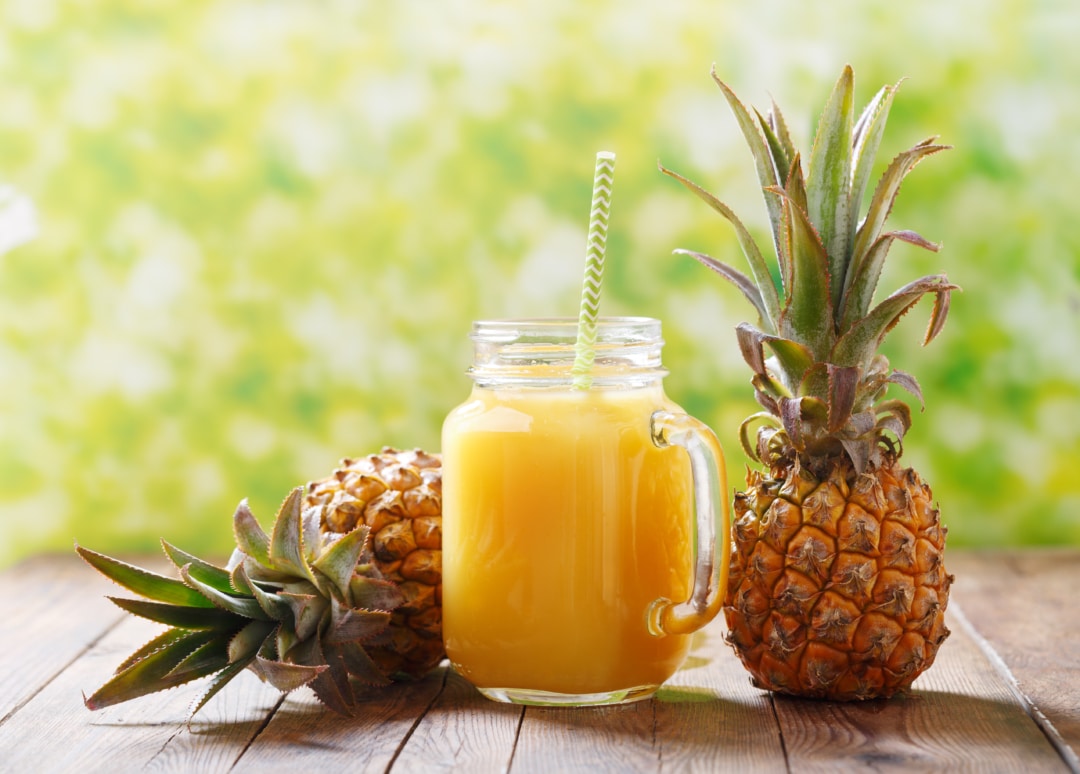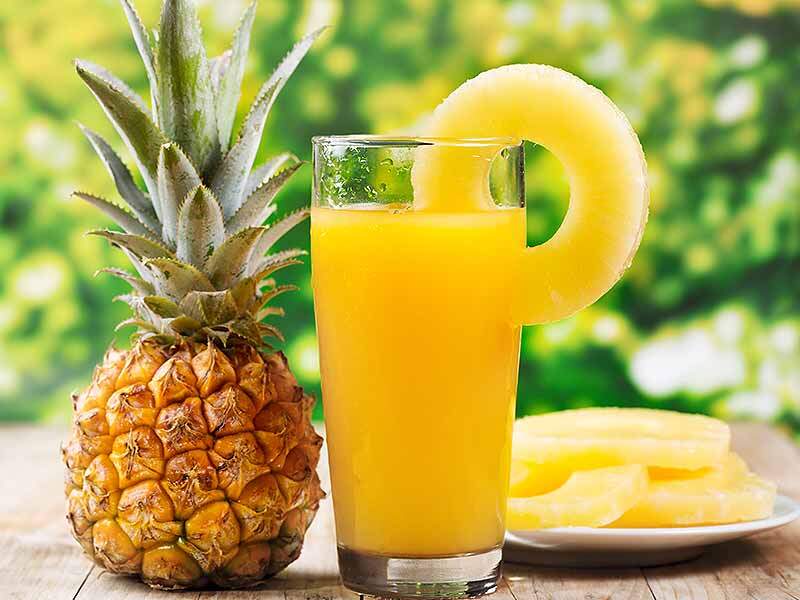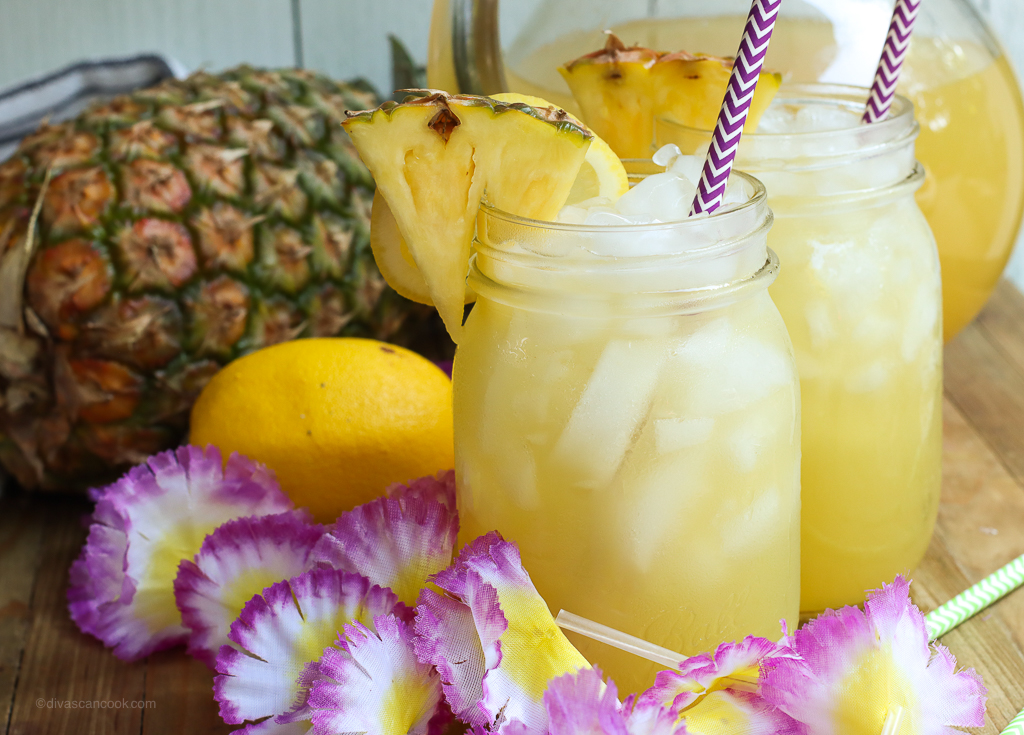Pineapple juice is a delicious and refreshing tropical drink that has gained popularity all around the world. It is made from the fruit of the pineapple plant, scientifically known as Ananas comosus. This tropical fruit is native to South America and was first discovered by the indigenous people of Brazil. It was later introduced to other parts of the world through trade and colonization.
Pineapple juice is not only a tasty beverage, but it also offers numerous health benefits. It is packed with essential vitamins, minerals, and enzymes that make it a nutritious choice for hydration. In this article, we will explore the different varieties of pineapple juice, its health benefits, and its culinary uses. We will also take a closer look at the pineapple industry in Vietnam, a major producer of this tropical fruit.
Contents
- 1 Vietnam’s Pineapple Industry and the Rise of Pineapple Juice
- 2 Fresh Pineapple Juice: A Refreshing and Healthy Choice
- 3 Pineapple Juice in Cans: Convenience and Versatility
- 4 The Tropical Flavors of Pineapple Juice
- 5 Pineapple Juice as a Natural Sweetener
- 6 Health Benefits of Pineapple Juice: Boosting Immunity and Digestion
- 7 Exploring the Culinary Uses of Pineapple Juice
- 8 Pineapple Juice Production and Processing Techniques
- 9 The History and Evolution of Pineapple Juice
- 10 Conclusion
Vietnam’s Pineapple Industry and the Rise of Pineapple Juice

Vietnam is one of the top producers of pineapples in the world, with over 500,000 hectares of land dedicated to pineapple cultivation. The country produces both fresh pineapples and pineapple juice for local consumption and export. The warm and humid climate in Vietnam is perfect for growing pineapples, making it a lucrative crop for farmers.
The pineapple industry in Vietnam has experienced significant growth in recent years, thanks to the demand for pineapple juice. The convenience and health benefits of pineapple juice have made it a popular beverage worldwide. As a result, many farmers in Vietnam have shifted their focus from growing fresh pineapples to producing pineapple juice.
Pineapple juice production in Vietnam follows strict quality standards and uses modern processing techniques to ensure the freshness and nutritional value of the juice. The country’s proximity to major markets in Asia has also made it a favorable location for pineapple juice production, as it reduces transportation costs and ensures timely delivery.
The Evolution of Pineapple Juice in Vietnam
Pineapple juice was first introduced to Vietnam by the French during their colonization in the 19th century. The fruit, which was previously only consumed fresh, became popular as a canned drink in Vietnam. However, with the rise of health-conscious consumers, the demand for fresh pineapple juice has increased in recent years.
Vietnam’s pineapple industry has also faced challenges, including diseases and pests that affect pineapple plants. To overcome these obstacles, farmers have adopted organic farming methods and use natural remedies to protect their crops. This has not only improved the quality of pineapples but also made them more appealing to health-conscious consumers.
Fresh Pineapple Juice: A Refreshing and Healthy Choice

Fresh pineapple juice is a delicious and healthy option for quenching thirst on a hot day. It is made by extracting the juice from ripe pineapples through various methods, such as squeezing, pressing, or blending. The resulting juice is a refreshing and nutrient-dense beverage that offers numerous health benefits.
Nutritional Value of Fresh Pineapple Juice
Fresh pineapple juice is a rich source of vitamins, minerals, and enzymes that are essential for overall health and well-being. It is a good source of vitamin C, an antioxidant that boosts immunity and promotes skin health. Pineapple juice also contains significant amounts of vitamins B6 and B1, magnesium, manganese, and potassium.
The enzyme bromelain, found in fresh pineapple juice, has anti-inflammatory properties and aids in digestion. It breaks down proteins and helps to relieve digestive issues such as bloating and constipation. Additionally, pineapple juice is low in calories and can be a healthier alternative to sugary drinks.
Health Benefits of Fresh Pineapple Juice
Pineapple juice offers a range of health benefits due to its high nutrient content. Regular consumption of this tropical beverage can help boost immunity, support digestion, and improve skin health. The antioxidants in pineapple juice also help to reduce the risk of chronic diseases such as heart disease and cancer.
The enzyme bromelain in fresh pineapple juice has anti-inflammatory properties that can help reduce pain and swelling in conditions like arthritis and sports injuries. It also aids in wound healing and may improve respiratory health by reducing mucus build-up in the lungs.
Pineapple Juice in Cans: Convenience and Versatility

Canned pineapple juice is a convenient option for those who want to enjoy the tropical flavors of pineapple on-the-go. It is made by extracting the juice from ripe pineapples and then pasteurizing it to preserve its freshness and flavor. Canned pineapple juice is often used in cocktails and mixed drinks, but it can also be enjoyed on its own.
Advantages of Canned Pineapple Juice
One of the main advantages of canned pineapple juice is its long shelf life. The pasteurization process kills harmful bacteria and extends the juice’s shelf life without compromising its nutritional value. This makes it a convenient option for storage and transportation, especially for areas where fresh pineapples are not readily available.
Canned pineapple juice is also versatile in its uses. It can be used in cooking and baking to add a tropical twist to dishes, such as marinades, sauces, and desserts. Its sweet and tangy flavor pairs well with savory dishes and can also be used to balance out spicy flavors.
Disadvantages of Canned Pineapple Juice
Despite its convenience and versatility, canned pineapple juice may contain added sugars and preservatives. These additives can significantly increase the calorie and sugar content of the juice, making it less healthy compared to fresh pineapple juice. It is essential to read the ingredients label before purchasing canned pineapple juice and opt for varieties with no added sugar.
Additionally, the pasteurization process used in canned pineapple juice may reduce its vitamin and enzyme content. While it still offers some health benefits, fresh pineapple juice is a more nutritious option overall.
The Tropical Flavors of Pineapple Juice

Pineapple juice is known for its sweet and tangy flavor, which makes it a popular ingredient in tropical cocktails and mocktails. Its distinct taste comes from a combination of natural sugars, acids, and enzymes found in the fruit. The flavor profile may vary depending on the variety of pineapple used and its ripeness.
Exploring Different Varieties of Pineapple Juice
There are many varieties of pineapples grown around the world, each with its unique flavor profile. Some of the most common varieties used for making pineapple juice include the Smooth Cayenne, Queen, and MD-2, also known as the “Gold” pineapple. These varieties have a higher sugar content and are often used for commercial pineapple juice production.
The flavor of freshly squeezed pineapple juice may also vary depending on the ripeness of the fruit. Ripe pineapples have a stronger aroma and a sweeter taste, while unripe pineapples tend to be more tart. The level of acidity also plays a role in the overall flavor of pineapple juice, with some varieties being more acidic than others.
Pairing Pineapple Juice with Other Flavors
While pineapple juice is delicious on its own, it can also be paired with other flavors to create refreshing and flavorful beverages. It pairs well with citrus fruits such as oranges and lemons, adding a zesty kick to the drink. Coconut water is also a popular pairing for pineapple juice, creating a tropical and hydrating beverage.
For a more exotic twist, pineapple juice can be mixed with spices like ginger or turmeric to create a spicy yet refreshing drink. It also pairs well with herbs like mint and basil, which add a fresh and aromatic element to the juice. The versatility of pineapple juice allows for endless possibilities when it comes to flavor combinations.
Pineapple Juice as a Natural Sweetener

One of the health benefits of pineapple juice is its ability to act as a natural sweetener. Its high sugar content and sweet flavor make it a great alternative to refined sugars in recipes and drinks. This makes pineapple juice a healthier option for those looking to reduce their sugar intake.
Using Pineapple Juice as a Sweetener
Pineapple juice can be used as a natural sweetener in various dishes, from beverages to baked goods. It is often used to sweeten smoothies, fruit juices, and cocktails without adding processed sugars. The tangy flavor of pineapple juice also helps to balance out the sweetness, making it a versatile option for different flavor profiles.
In baking, pineapple juice can be used as a substitute for sugar in cakes and muffins. It adds moisture and flavor to the baked goods, while reducing the overall sugar content. Pineapple juice can also be used as a glaze for meats such as ham and chicken for a deliciously sweet and tangy twist.
Health Benefits of Pineapple Juice: Boosting Immunity and Digestion
Pineapple juice offers numerous health benefits due to its rich nutrient content. It contains essential vitamins, minerals, and enzymes that support overall health and well-being. Let’s take a closer look at the specific health benefits of pineapple juice.
Boosting Immunity
Pineapple juice is an excellent source of vitamin C, which is crucial for a healthy immune system. Vitamin C helps to boost the production of white blood cells, which defend the body against infections and illnesses. Regular consumption of pineapple juice can help to prevent colds, flu, and other respiratory infections.
The antioxidants in pineapple juice also play a role in boosting immunity. They protect the body against free radicals, which can cause cell damage and weaken the immune system. By reducing the number of free radicals in the body, pineapple juice helps to maintain a strong and healthy immune system.
Aiding in Digestion
The enzyme bromelain found in pineapple juice is known for its digestive properties. It helps to break down proteins and aids in the digestion of food. Regular consumption of pineapple juice can help to relieve digestive issues such as bloating, constipation, and diarrhea.
Bromelain also has anti-inflammatory properties that can help to reduce inflammation in the digestive tract. This can be beneficial for those with inflammatory bowel diseases such as Crohn’s disease and ulcerative colitis. Additionally, the high fiber content in pineapple juice can improve bowel movements and promote a healthy digestive system.
Exploring the Culinary Uses of Pineapple Juice
Apart from being a popular beverage, pineapple juice is also used in cooking and baking. Its sweet and tangy flavor adds a tropical twist to dishes and desserts. Let’s take a look at some culinary uses of pineapple juice.
Marinades and Sauces
Pineapple juice is often used as a marinade for meats such as chicken and pork. The enzymes in the juice help to tenderize the meat and infuse it with flavor. It can also be used in sauces for a tangy and sweet element, such as in teriyaki sauce or sweet and sour sauce.
Desserts
Pineapple juice is commonly used in desserts, adding a burst of tropical flavor. It is often used in cakes, pies, and tarts, either as a primary ingredient or as a glaze on top. It pairs well with other fruits like coconut and mango, making it a popular choice for fruit salads and ice cream toppings.
Cocktails and Mocktails
The sweet and tangy flavors of pineapple juice make it a perfect ingredient for cocktails and mocktails. It is commonly used in tropical drinks like the piña colada and can also be mixed with other juices and spirits for a refreshing twist. Mocktail options include virgin piña coladas and pineapple mojitos, which are perfect for those looking to avoid alcohol.
Pineapple Juice Production and Processing Techniques
The production of pineapple juice involves several steps, from harvesting the pineapples to bottling the final product. Let’s take a closer look at the production and processing techniques used to bring pineapple juice to our tables.
Harvesting and Sorting
Pineapple plants take about 18 months to mature before they can be harvested. Fully ripe pineapples have a bright yellow color and are slightly soft to the touch. They are handpicked from the plant and sorted according to size and quality.
The sorting process is crucial in ensuring that only high-quality pineapples are used for juice production. Any damaged or unripe fruits are discarded, as they can affect the flavor and nutritional value of the juice.
Extraction and Filtration
Once the pineapples are sorted, they are washed thoroughly and then peeled by machine. The peeled pineapples are then crushed and pressed to extract the juice. The resulting juice is then passed through a filtration process to remove any impurities and pulp, leaving behind clear and smooth juice.
Pasteurization and Packaging
To preserve the freshness and nutrients in pineapple juice, it is pasteurized by heating it to a specific temperature for a set period. This kills harmful bacteria and extends the shelf life of the juice without affecting its taste and quality.
Once the pasteurization process is complete, the juice is ready for packaging. It is commonly packaged in glass or plastic bottles, cans, or tetra packs for distribution and consumption. The packaging used depends on the intended market and the type of processing technique used.
The History and Evolution of Pineapple Juice
Pineapple juice has come a long way since its discovery by indigenous people in South America. It has evolved from a local drink to a global beverage with various processing techniques and uses. Let’s take a brief look at the history and evolution of pineapple juice.
Early Uses of Pineapple Juice
The indigenous people of Brazil were the first to discover the pineapple plant and its fruit. They used it for medicinal purposes and also fermented the juice to make an alcoholic beverage called chicha. Later on, the Spanish introduced pineapples to Europe, where they became a symbol of luxury and wealth due to their rarity.
In the 19th century, canned pineapple juice was introduced to the market, making it more accessible to consumers. This marked the beginning of the commercial production of pineapple juice, which has since then undergone various changes and improvements.
Modern Processing Techniques
With advancements in technology, the production and processing of pineapple juice have become more efficient and precise. The pasteurization process, which was previously done manually, is now automated, ensuring consistent quality and safety standards.
New packaging techniques, such as aseptic packaging, have also been developed to maintain the freshness and nutritional value of pineapple juice. This technique involves sterilizing the juice and packaging it in a sterile environment, reducing the need for preservatives.
Rise in Popularity and Availability
As mentioned earlier, the demand for pineapple juice has increased in recent years due to its health benefits and convenience. It is now readily available in most supermarkets and grocery stores worldwide, making it a popular choice for consumers looking for a healthy and refreshing drink.
Pineapple juice has also gained popularity in the culinary world, with chefs and home cooks incorporating it into their dishes and recipes. Its versatility makes it a great ingredient for both sweet and savory dishes, adding a tropical twist to traditional recipes.
Conclusion
Pineapple juice is a delicious and refreshing tropical beverage that offers numerous health benefits. Its popularity has grown over the years, and it is now readily available in different varieties and forms around the world. Whether you prefer fresh pineapple juice or the convenience of canned juice, there are many ways to enjoy this tropical drink.
The pineapple industry in Vietnam has also seen significant growth, thanks to the demand for pineapple juice. With modern processing techniques and a focus on quality, Vietnamese pineapple juice has become a popular choice for consumers worldwide.
Apart from its delicious taste, pineapple juice is packed with essential vitamins, minerals, and enzymes that promote overall health and well-being. It can be used in cooking, baking, and mixology, making it a versatile ingredient in the culinary world.
In conclusion, pineapple juice is not just a refreshing beverage, but a nutritious addition to any diet. Its tangy and sweet flavors, along with its numerous health benefits, make it a must-try for anyone looking to add some tropical flair to their daily routine. So next time you’re craving a drink, reach for a glass of refreshing pineapple juice and enjoy all its amazing flavors and benefits.
